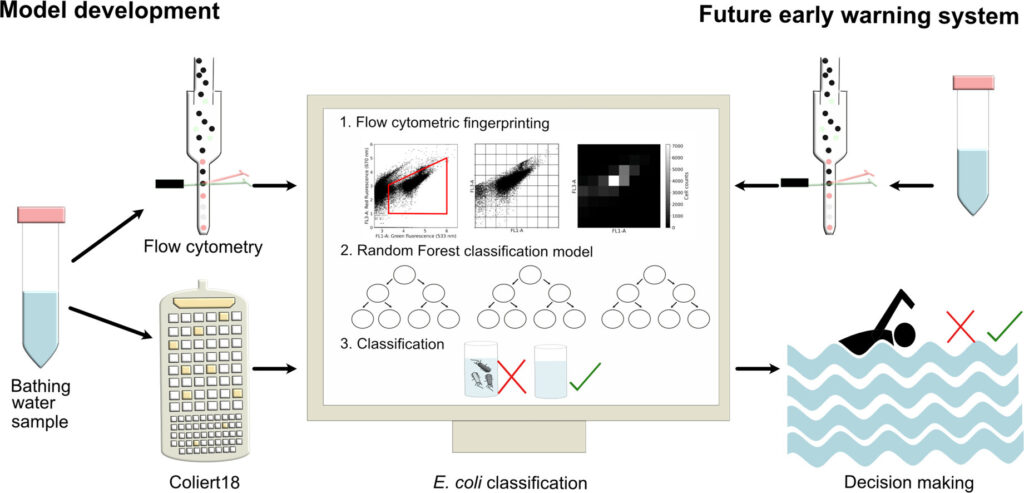Faster and smarter water quality control using AI
Industrial PhD student Isabel Erb describes in a new article in Water Research X the work on faster and smarter water quality control using AI.
Traditional methods for microbial water quality testing take up to two days to produce results, putting humans in contact with this water risk during this period. A new study combines flow cytometry (a technique that rapidly analyses microorganisms in water) with machine learning to improve and accelerate water quality assessment.
The study suggests machine learning can leverage microbial community information from flow cytometry, that when combined with established methods quantifying indicators, can rapidly assess microbial water quality as an early warning system that complements traditional approaches.
Highlights
- Machine learning combined with flow cytometry can indicate microbial water quality.
- Binary classification of Escherichia coli in bathing water yielded an accuracy of 80 %.
- A two-threshold model, making only safe predictions, boosted accuracy up to 87 %.
The lead author is Isabel K Erb, with co-authors Niklas Gador, Moa Jinbäck, Elisabet Lindberg, and Catherine J Paul.
Read the full article via this link.

Belongs to project
Exploration of new online methods for monitoring and analyzing bathing water quality
